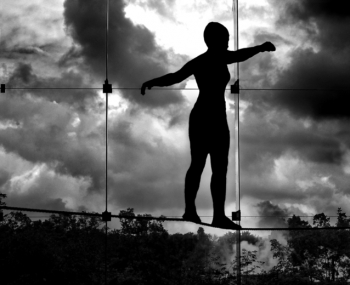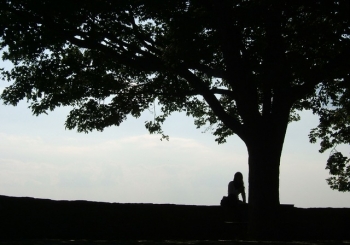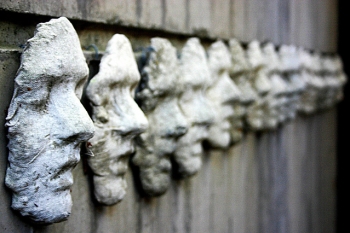
Blog (423)
My hope is to offer encouragement to writers as well as those who simply love to read. You will find eclectic snippets here—news of projects I’m working on, comments regarding books I enjoy, favorite authors, quotes, and reflections regarding my own experiences. I especially like to write about my dreams—those parables in the night seasons. Symbols and metaphors delight and intrigue me. You will find them here.
The conference room was too small--all of us sitting just slightly too close together. My introverted self rebelled at not having enough personal space. I gripped my coffee cup, thankful for its comforting warmth. I attended a development day with my colleagues to determine how we would handle changes coming our way with the expansion of our program. I looked down at the day's agenda outlined on the handout devised by the program manager. Small print. Thin margins. My anxiety increased. How would we ever get through all the details? How would I ever be able to cope with the work set before me? These changes appeared to imply longer work hours. Increased stress. I was a tight rope walker looking down at a yawning canyon with no net in sight.
The day ended, and I breathed a sigh relief, grateful to be released from the small enclosure, and left wondering how I would ever be able to accomplish the tasks expected of me. I wanted to give up. I wanted to quit. I wanted to explore how I might retire earlier than planned. The work load seemed too much. It was too much. Impossible.
There is a slight lifting of the air so I can smell the earth for the first time, and yesterday I took possession of my life here.~May Sarton
In tenth grade I felt my way through geometry. I made a B in that class, but I don't know how I passed. I'd learn a concept, but then the construct would fly from my head. Angles. Points. Lines. They all simultaneously perplexed and intrigued me. I had a light bulb moment when I finally caught on to geometric sequencing...2, 6, 18, 54...a geometric progression with a common ratio of 3. This concept makes me think of my life sequencing now, my life's progression.
I pulled the string on the blinds, like unzipping the day, the sky milky, a few raindrops falling on the windowpane. A lone bird sang--its melody piercing the dreary day. I wanted to be that bird--to have a song on my lips. Yet inside all I could think about was all I had to do. Get to the filing stacked in the corner, falling over and spilling onto the floor. Wasn't staying organized on the computer supposed to stop the paper pile up? My mind raced...laundry, take a walk, help my husband with yardwork, write emails, devise menus for the week, clean the bathroom, sign up for conference, work on taxes, practice language, verb drills, banking. I had the day off. Surely the time didn't have to consist solely of "to-dos." Surely there could be something more appealing than the list I'd stored up in my mind. I snapped the blind shut and whispered, "Stop. Don't do this to yourself. Surely, this non-stop flurry in your brain is not what God would have for you this day." I asked a question then. "God, what would you have for me today?" Then He posed this question to me: "What part of your kingdom inheritance do you want most this day?" "I want to be unpressured. I want peace. I want to feel unhurried," I said. "You possess those things in me. Take them. Sit down. Rest."
I opened the blinds again. I could see the little bird now. He perched on a thin tree branch, gusts of wind making the limb bob up and down. But still he sang, his eyes shiny black beads. He seemed to be encouraging me to come outside with his sweet warbling. I donned my rain jacket and headed out to the tidal creek. I prayed as I walked. "God I want to learn to rest, let go, inside this beautiful, chaotic world, but sometimes I don't know what this means for me--what would you have me do?"
...tell us what the world has been to you in the dark places and in the light...~Toni Morrison, Nobel Prize Lecture, 1993
They sat in the front of the conference room. A panel of transgender individuals telling their stories to a group of therapists, social workers and the like. The panel consisted of an attorney, several advocates who organized support groups in the community, and an individual who worked for the police department. We sat listening, absorbed by what they shared. I leaned forward in my chair. In all of their stories, I got the impression that they experienced a sense of being unmasked when they felt heard. Seen.
I thought about the impact of their narratives for me. I have transgender persons on my caseload. Sometimes I have felt terrified in working with them, knowing I was ignorant regarding so many of the issues they struggled with. Using the wrong pronouns. Being overly clinical, trying to hide my discomfort. And I'm the one with privilige. I am white. I have a car and don't have to worry about transportation. I have an ID with "F". I've never questioned my gender. I have an education. I have money to buy organic foods. I have good credit. I have a family who supports me. I can use the women's restroom without a second thought.
In a dream, a man with a yellow, pock-marked face chased me. Each time I looked back to see if he was still there, I realized he was gaining on me. I was within his reach. He was screaming profanities at me. I realized I needed to call for help, but felt my throat closing. Finally, with intention and effort, I opened my mouth and shouted as loudly as I could. "NO, NO, NO." I awakened with a jolt, still yelling. It was only a dream, awful though it was. I felt afraid and unsettled. It took awhile for my heartbeat to slow. I have a panacea for bad dreams, though. I learned this solution from the late and beloved John Paul Jackson, a man who taught on the biblical interpretation of dreams. Over the years, I've taken several of his courses to better help me understand my own dreams. Mr Jackson taught the concept of the "flip." What is the opposite of the darkness contained in the dream? For example, the flip might sound something like this after a disturbing dream:
Life instead of death.
Strength instead of weakness.
Peace instead of anxiety.
Favor instead of fear.
Beauty instead of ugliness.
Refreshment instead of oppression.
Power instead of helplessness.
Courage instead of worry.
Enthusiasm instead of negativity.
Grace instead of bondage.




